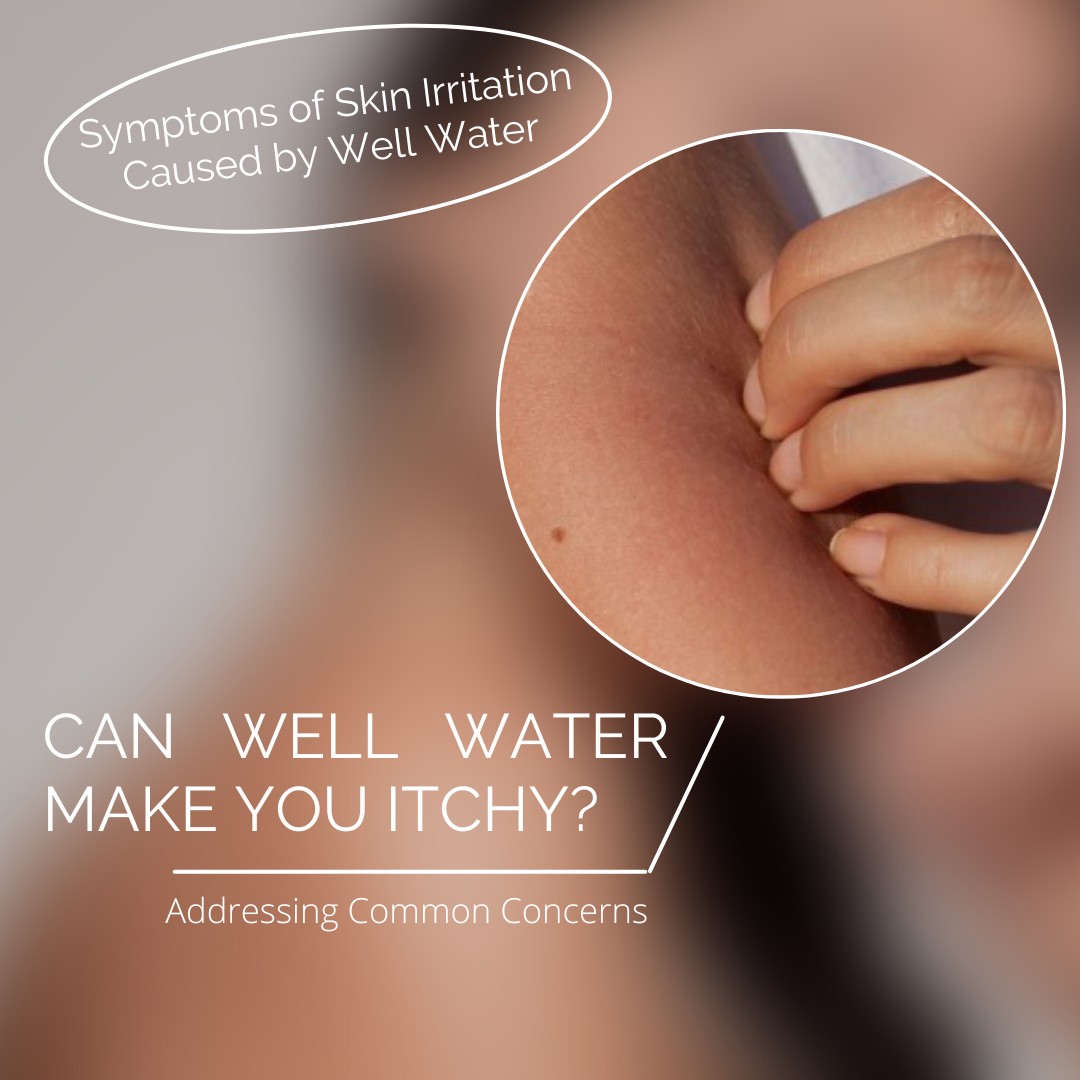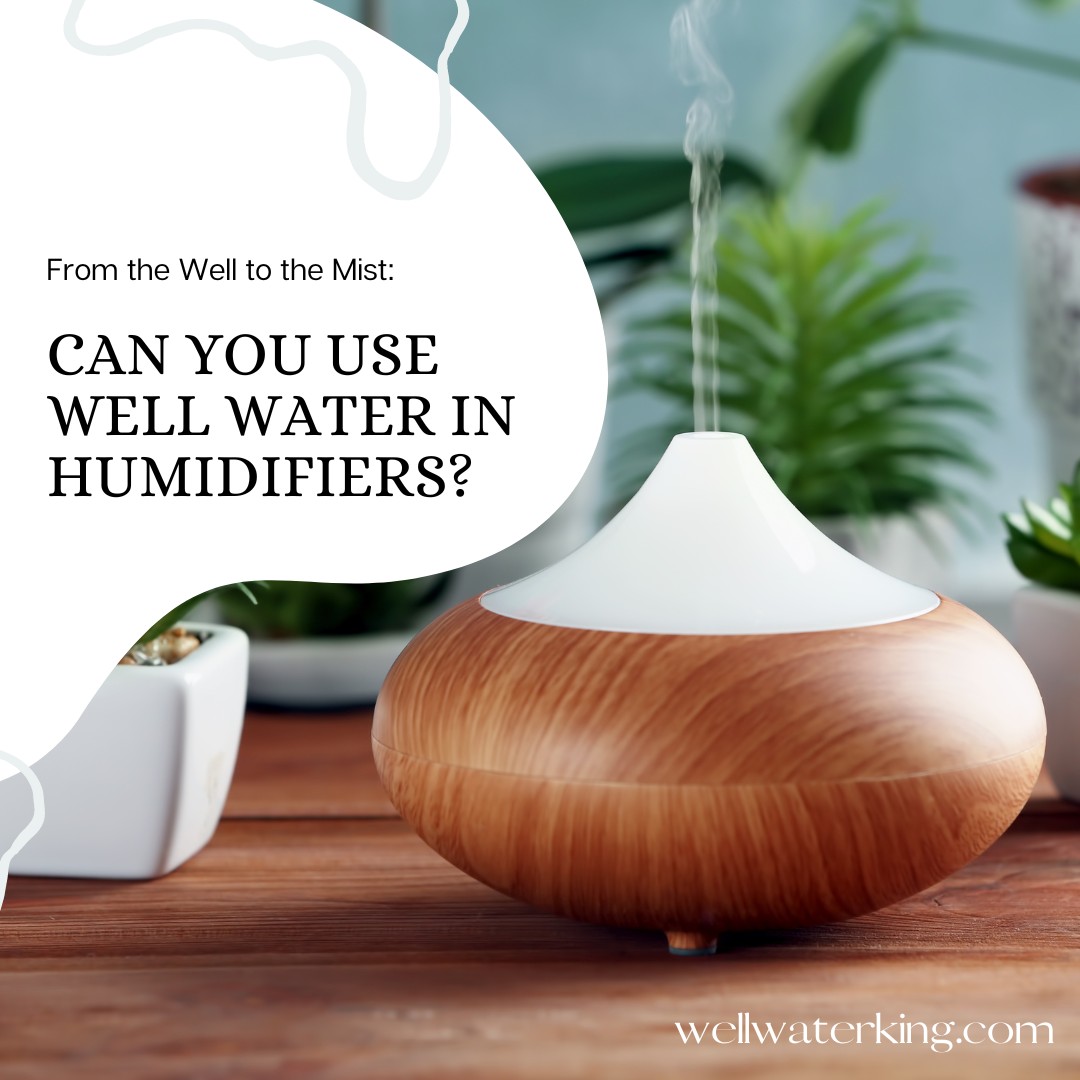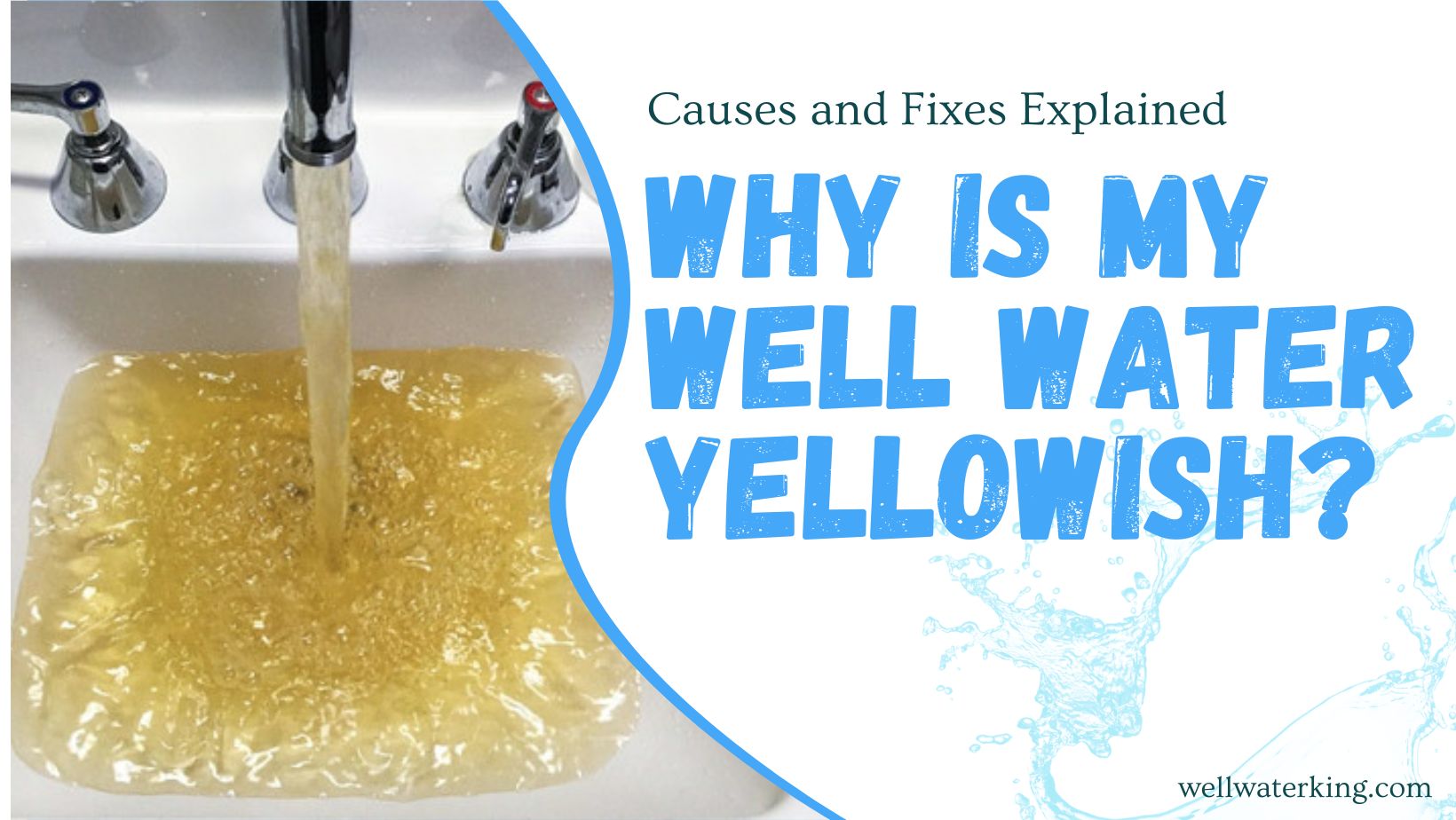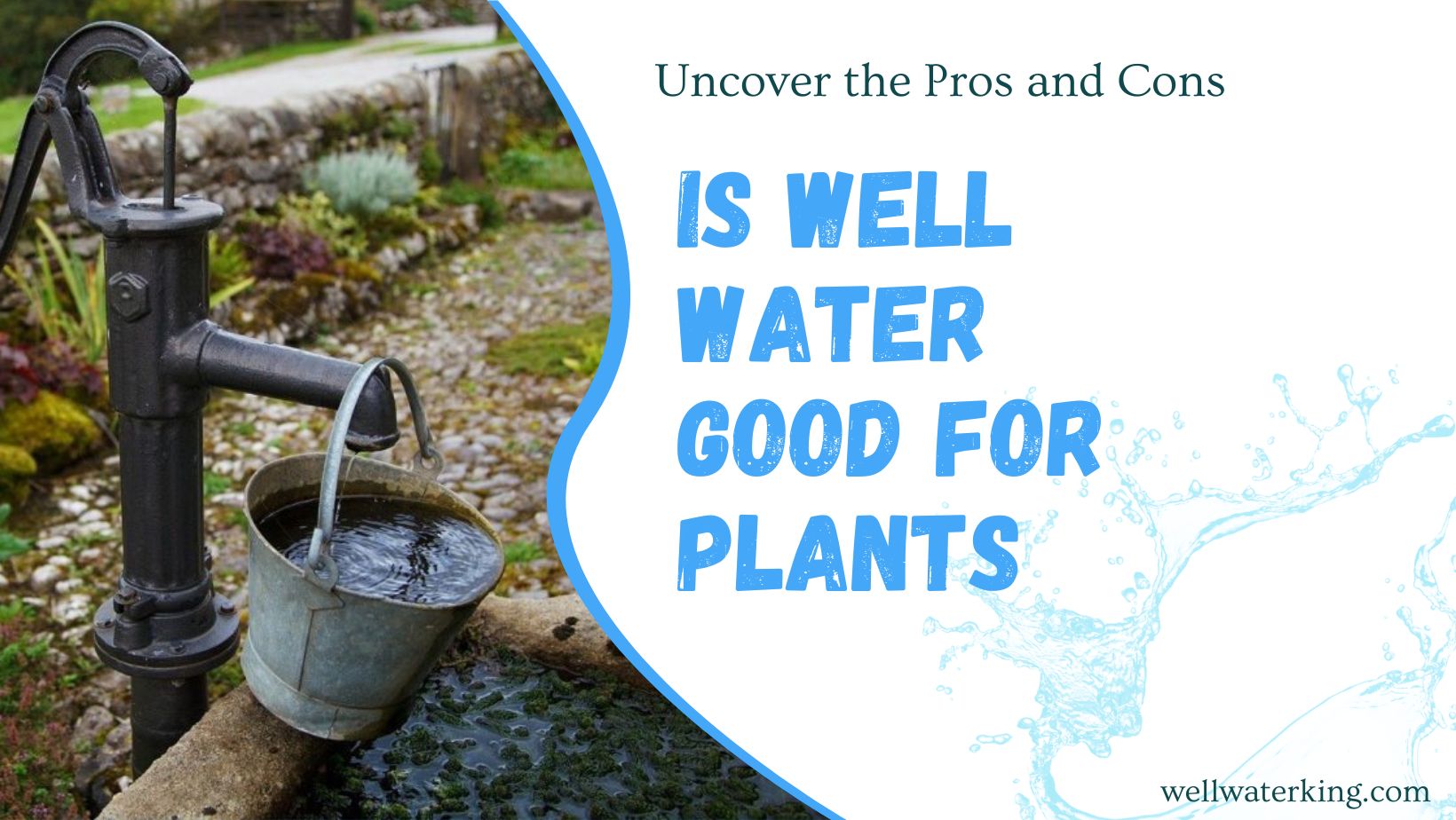Have you ever stepped out of the shower and felt a maddening itch take over, leaving you wondering about the very water you just used? For many living in rural areas or those sourcing their water from wells, this is not an uncommon experience. Well water, drawn directly from underground, can be a concoction of various minerals and impurities. While this natural blend might seem pure, it’s these very elements that can sometimes play havoc with our skin.
Is it the calcium, the magnesium, or maybe the iron content? Or perhaps there’s a deeper tale behind the link between hard water and skin irritations? Dive in with us as we explore how the crystal-clear water from your well might be the unseen culprit behind your skin’s discomfort, and more importantly, how you can mitigate its effects. If you’ve ever asked, “Can well water make me itchy?”, you’re about to find your answer.
How Well Water Can Cause Itchy Rashes

The short answer is yes, and here’s why. Wells tap into underground water sources, which might contain various minerals and impurities. When these substances come in contact with your skin, they can sometimes lead to irritation, resulting in an itchy rash. This is especially true if you have sensitive skin or pre-existing skin conditions.
Well water is sourced directly from underground, tapping into aquifers, which are essentially vast storages of water accumulated over time. While the idea of getting water directly from the earth may sound pure and pristine, it’s essential to remember that this water has been in contact with various layers of soil, rocks, and minerals.
This prolonged interaction can lead to the absorption of multiple elements that may not be particularly friendly to our skin. Let’s delve deeper into the intricacies of how well water can lead to itchy rashes.
- High Mineral Content:
- Hard Water: The term “hard water” refers to water with high concentrations of calcium and magnesium. These minerals can form a film on the skin, which not only clogs pores but also prevents the skin’s natural oils from keeping the surface moisturized. The result? Dry, irritated, and itchy skin.
- Iron: Some well water sources have a high iron content. This can not only stain fixtures and laundry but also leave a residue on the skin. This residue can be drying and irritating, potentially leading to itchiness.
- Presence of Other Contaminants:
- Microorganisms: Bacteria, viruses, and other pathogens can sometimes find their way into well water, especially if the well is not adequately sealed or if there’s contamination from surface water. Some of these microorganisms can cause skin infections or reactions when they come into contact with the skin.
- Chemicals: Pesticides, herbicides, and other chemicals can leach into groundwater and end up in well water. Even in small amounts, some of these chemicals can cause skin irritations and rashes when used for bathing.
- pH Levels:
- The pH level of water indicates how acidic or alkaline it is. Ideally, water should be neutral with a pH level of around 7. However, depending on the surrounding soil and rocks, well water can sometimes be too acidic or alkaline. When the pH level of the water isn’t balanced, it can disrupt the skin’s natural pH balance, leading to dryness, sensitivity, and itchiness.
- Temperature Fluctuations:
- Well water temperatures can vary depending on the depth of the source and the season. Extreme cold or hot water can exacerbate skin conditions or create new irritations. Cold water can tighten and dry out skin, while excessively hot water can strip the skin of its essential oils, leading to itchiness.
Symptoms of Skin Irritation Caused by Well Water
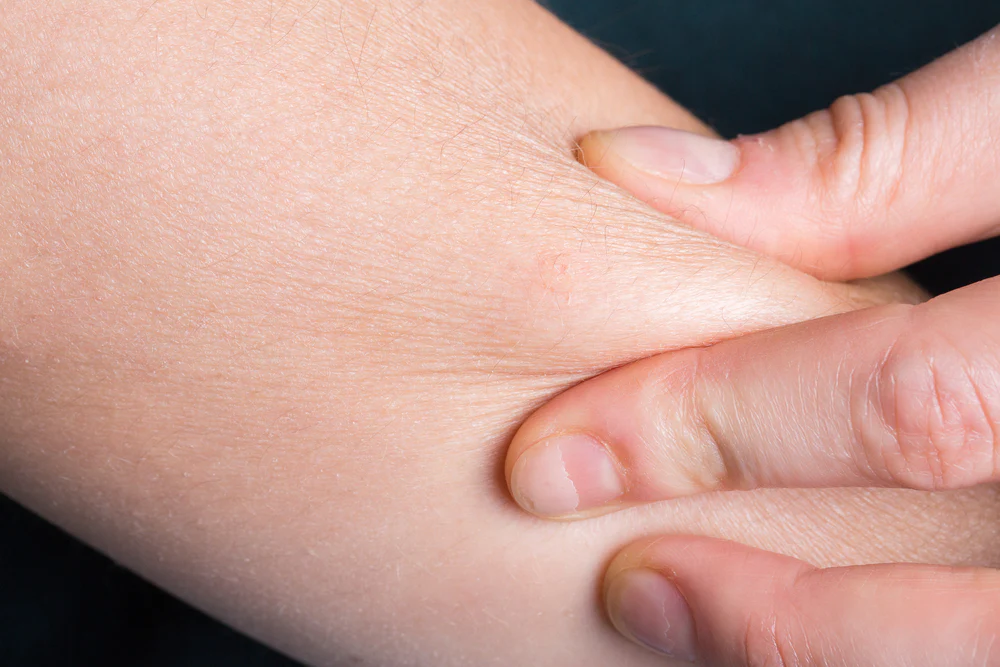
Recognizing these symptoms early can help in addressing the underlying cause and taking corrective actions. Here are some of the most common symptoms of skin irritation due to well water:
- Redness and Inflammation:
Affected areas of the skin may appear red and inflamed. This is a direct response to irritation, as the skin tries to combat potential harmful agents. - Itchiness:
One of the most common symptoms, itchiness can range from a mild annoyance to an intense urge to scratch. Continuous scratching can further damage the skin, potentially leading to infections. - Dry Patches:
Areas of the skin may feel parched and display visible dry patches. These patches can sometimes flake off or even crack, causing discomfort. - Tight Feeling:
After coming into contact with hard well water, the skin can feel unusually tight, especially post-showering or washing. This sensation is due to the skin being stripped of its natural oils. - Flaky Skin:
In some cases, the skin can start to flake or peel, especially in areas that are frequently exposed to the well water. - Bumps or Pimples:
The minerals in hard water can clog pores, leading to the formation of small bumps or acne-like pimples. These are often painful and can take time to heal. - Increased Sensitivity:
You might notice that your skin reacts more quickly or intensely to products that you previously used without issue. This increased sensitivity can be a result of the skin’s protective barrier being compromised by the well water. - Worsening of Pre-existing Skin Conditions:
If you have conditions like eczema, psoriasis, or rosacea, you might observe a flare-up or worsening of symptoms after exposure to well water. - Discoloration:
In rare cases, especially with high iron content, the skin may show a slight orange or brownish tint, a direct result of the iron residue left on the skin.
How to Stop Itching from Hard Water
Hard water, characterized by its high mineral content (mainly calcium and magnesium), can often leave skin feeling dry, tight, and itchy. While the most effective solution would be to treat the hard water itself, there are several immediate measures you can take to alleviate the itching and prevent further skin irritation. Here are some strategies to help you find relief:
- Install a Water Softener: The most definitive solution is to use a water softener system. These systems work by replacing the calcium and magnesium ions in hard water with sodium ions, thus “softening” the water. This can help prevent the mineral buildup that contributes to skin dryness and itchiness.
- Shower in Cooler Water: Hot water can exacerbate the drying effects of hard water. Opt for lukewarm showers to minimize stripping the skin of its natural oils.
- Use Gentle, Moisturizing Soaps: Avoid soaps with harsh detergents or sulfates. Instead, go for moisturizing or glycerin-based soaps that can help counteract the drying effects of hard water.
- Apply a Moisturizer Post-shower: Immediately after showering, while the skin is still damp, apply a hydrating lotion or cream to lock in moisture and form a protective barrier against the drying minerals.
- Consider a Shower Filter: Installing a showerhead filter can help reduce some of the minerals and impurities present in hard water, alleviating their impact on the skin.
- Limit Shower Time: Keeping showers short can reduce the exposure time to hard water, limiting its drying and irritating effects.
- Use a Humidifier: If you live in a dry environment, using a humidifier can add moisture to the air, which can be beneficial for your skin, especially if it’s already irritated by hard water.
- Drink Plenty of Water: Internal hydration is just as crucial. Drinking ample water can help keep your skin hydrated from the inside out.
- Avoid Scratching: Scratching can further irritate the skin and even lead to infections. If the itch is unbearable, consider over-the-counter anti-itch creams or consult a dermatologist for recommendations.
- Regularly Clean and Descale Taps and Showerheads: This will prevent mineral buildup and ensure you’re not getting an extra dose of minerals during your showers.
Preventing Skin Irritation Caused by Well Water
-
Testing your well water for contaminants
First things first, test your well water! By knowing what’s in your water, you can take the right steps to treat it. You can purchase testing kits or hire professionals to assess your water.
-
Regular maintenance of your well and water system
To ensure you’re getting the cleanest water possible, schedule regular maintenance for your well and water system. Keeping everything in tip-top shape can prevent harmful contaminants from entering your water supply.
-
Using a water softener or filter
If you’ve got hard water, consider investing in a water softener. It can help reduce the mineral content in your water. Alternatively, water filters can remove various contaminants, ensuring smoother and gentler water for your skin.
-
Drinking plenty of water to keep your skin hydrated
Remember, hydration isn’t just about what’s on the outside. Drinking plenty of water helps keep your skin moisturized from the inside out!
-
Avoiding harsh soaps and detergents
Some soaps and detergents can exacerbate the effects of hard water. Opt for gentler, moisturizing formulas that are kinder to your skin.
-
Avoiding hot showers and baths
As tempting as a steaming hot bath might be, it can strip your skin of essential oils. Try lukewarm water instead. Your skin will thank you!
Conclusion: Well Water and Your Skin – A Delicate Balance
Well water, with its natural origins, might seem like the ideal choice for many. But as we’ve discovered, its journey through layers of earth can introduce a mix of minerals, contaminants, and other elements that might not always be skin-friendly. From the tell-tale signs of redness and itchiness to the more subtle effects like a tight feeling after a shower, our skin often alerts us to the underlying issues with our water.
Recognizing these symptoms early is key. Once identified, a range of solutions, from testing and regular maintenance to using water softeners and filters, can make a significant difference. Moreover, simple lifestyle changes like adjusting water temperature, staying hydrated, and using gentle skincare products can complement these efforts.
In essence, while well water might pose certain challenges, with the right knowledge and proactive measures, it’s entirely possible to enjoy its benefits without compromising the health and comfort of our skin. So, the next time you feel an itch after a shower, remember – understanding and addressing the root cause can pave the way for many itch-free days ahead!

